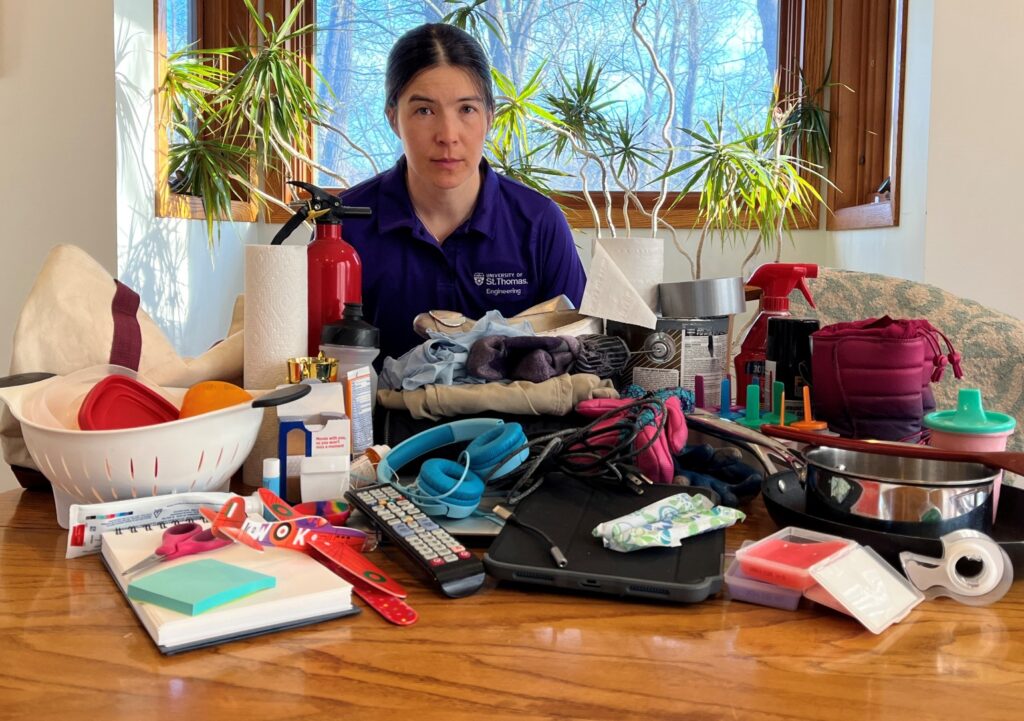Continuing and Professional Education (CAPE), specifically highlighted in St. Thomas 2025 as an avenue to meet the ever-changing needs of students, alumni and employers, is providing real-world opportunities to learn.
CAPE offers opportunities for professionals to expand their skills in areas such as health care, education, leadership, sales and marketing, nonprofits, project management, personal growth and more.
The university is a sought-after partner for professional development and career advancement by professionals and executives in the Twin Cities. In the St. Thomas 2025 strategic plan, CAPE was called on to meet the dynamic needs and desires of students, alumni, employers and the greater community. Associate Vice President for Continuing and Professional Education Dr. Tina Chang explained that CAPE plays a critical role in elevating Minnesota’s workforce, serving as an “engine” of economic growth in the region.
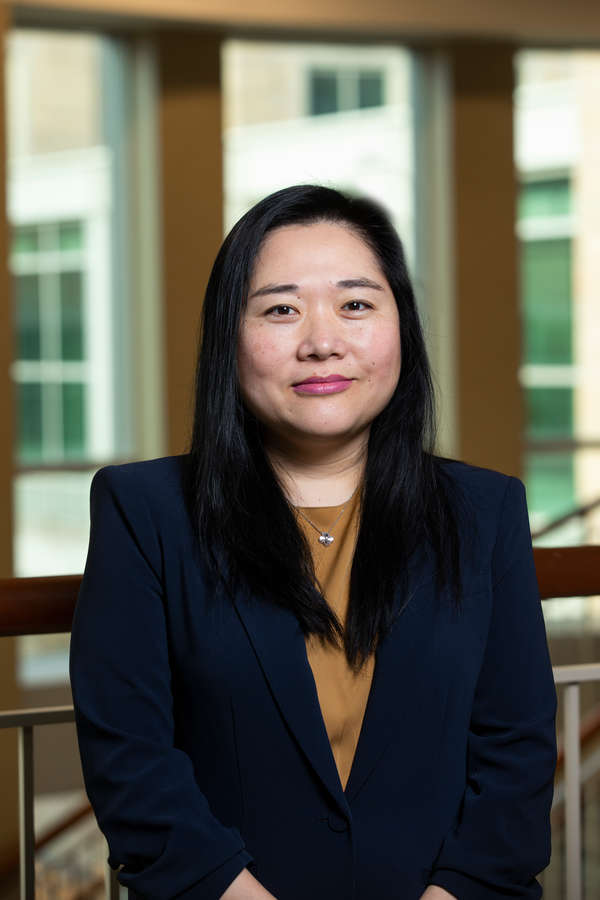
“These working professionals and executives are the lifeblood of the Twin Cities economy. CAPE serves a distinct function in the greater Twin Cities as we represent part of the larger university-business community ecosystem,” Chang said. “We have a seat at this coveted table, which is critical when our collective goal is to be the partner of choice.”
CAPE offers noncredit courses that range from $15 to $3,525. The courses are split between three different formats: executive and formal education classes, custom-style programs, and self-paced courses, under four pillars: Executive and Professional Education, Corporate Education, Tommie Online, and Selim Center.
Individuals can pick and choose from these formats depending on how much time and money they want to leverage and how they want to grow their skill set. Although these formats differ, all CAPE courses are taught by faculty, instructors and administrators who bring both professional and higher education experience to the table.
“The driving vision for CAPE is to create an inclusive and accessible culture and community of unique learning experiences, connecting industry leaders, deans, faculty, staff and students across all disciplines and backgrounds by providing noncredit learning experiences that directly contribute to the workforce needs of Fortune 500 companies, small and medium-sized companies, business start-ups and nonprofits,” Chang said.
That is the “token piece” to CAPE, Marketing Program Director of CAPE Sarah Burke added.
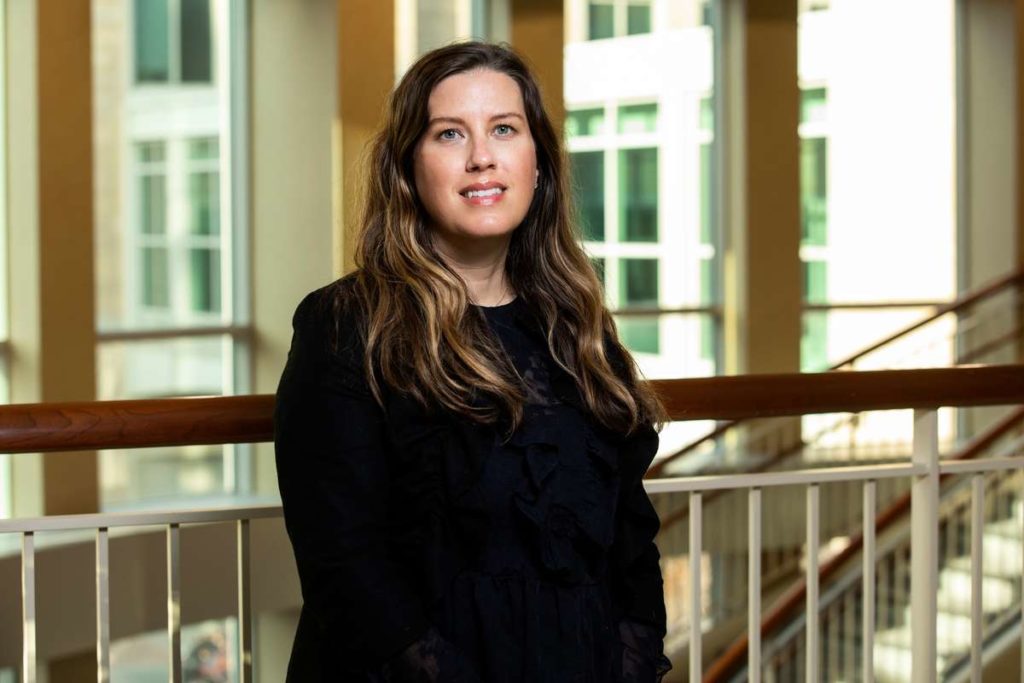
“These professors are bringing monthslong to yearslong worth of work, weeding out all the best information and condensing it down to these very specific classes,” Burke said.
CAPE has a professional focus embedded throughout the curriculum which gives individuals the opportunity to be taught the most up-to-date, cutting-edge information, ultimately helping them accelerate their career and beyond.
“CAPE has a treasure trove of expertise and talent to draw from, and appreciates opportunities to strategically partner with colleges and schools,” Chang said.
For example, CAPE designed a course with the Morrison Family College of Health titled Ethics and Telemental Health to educate social workers, psychologists and other licensed mental health professionals about the critical lessons learned during the pandemic and how to address privacy concerns with the accelerated rise in telemental health.
“Virtual services in health delivery are here to stay, including in the field of mental health,” said Vice President of Strategic Initiatives and Founding Dean Dr. MayKao Y. Hang. “We need more courses such as this one that can help our providers in the community be as effective as they can be.”
Students can choose to take single courses such as this or explore one of the three formats offered.
In the executive and formal education format, courses are typically held in person but will be experimenting with new formats going forward. Attendees have the potential to become certified project managers or pursue a mini-MBA course, for example.
Custom-style programs are built and tailored in collaboration by representatives from CAPE as well as by different Twin Cities organizations, businesses and corporations.
“They work with groups to bring, for example, a certified project management or mini-MBA to their organization but it could be skewed to whatever that industry is,” Burke explained.
Finally, the self-paced courses are considered the most economical option at a lower cost than the others and are for those who are interested in upskilling or reskilling to take on new tasks or roles. Some of these courses are eligible for continuing education units (CEUs) and/or count toward state professional licensure requirements. This option is entirely remote as students receive a downable link and complete the course at a pace that fits into their schedules.
“The nice thing is, we feature all four areas so CAPE can be attractable depending on where you are coming in from and what you are looking for,” Burke said.
Assistant Professor of Management and Executive and Professional Education Instructor Ernest L. Owens said faculty members modulate degree courses based off of communication with diverse practitioners and carry this research into their CAPE classrooms.
“The benefit to being a faculty member is seeing how practitioners in the field respond to the theory and practice we teach to degree students or how it informs our research,” he said. “So, we get immediate feedback from practitioners in the field.”
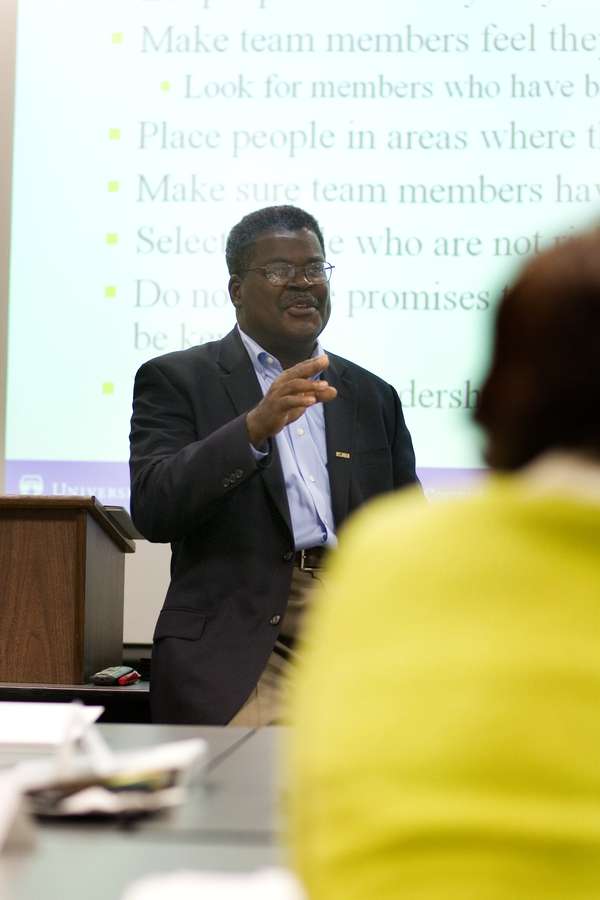
Focusing on the project management sphere, Owens said the success of the Certified Professional Project Manager (CPPM) course at St. Thomas is directly linked to the toolkit and frame of reference the course provides as to how one should approach ambiguous efforts.
“It allows practitioners to find success for outcomes so they can manage their resources to make project outcomes happen,” he said. “We’ve had a long history of people who’ve gone through CPPM and found real value. People talk with their colleagues in the industry or in the market space and suggested that they should take CPPM because it has real value to their jobs, activities and lives.”
CAPE will launch new labor market responsive programs including a special two-day Supply Chain Management course architected for working professionals who are managing operational issues but do not have a background in supply chain management. Professors in supply chain from the undergraduate program will be leading this specific course this summer.
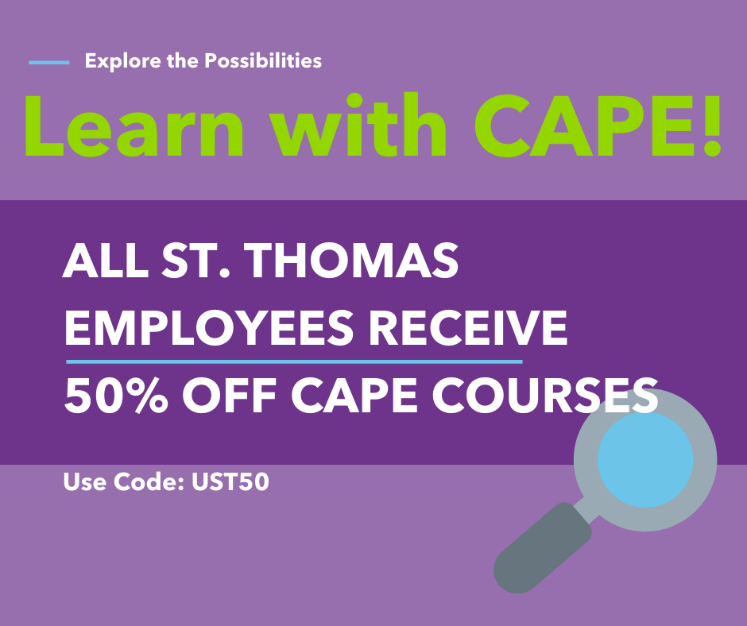
St. Thomas employees can exclusively enroll in CAPE courses for 50% off using the code UST50 for courses priced $100 or more.
“We really want other St. Thomas employees, faculty, staff, students and the community to rally around CAPE because it is an emerging time for St. Thomas to be a part of this higher education, professional education movement,” Burke said.
To find a complete list of CAPE’s offerings and to learn more, visit cape.stthomas.edu. For more specific questions regarding CAPE, contact tina.chang@stthomas.edu.




